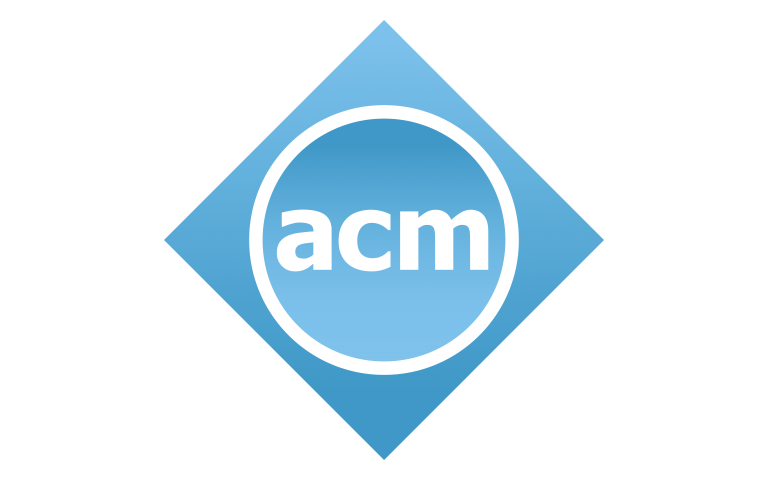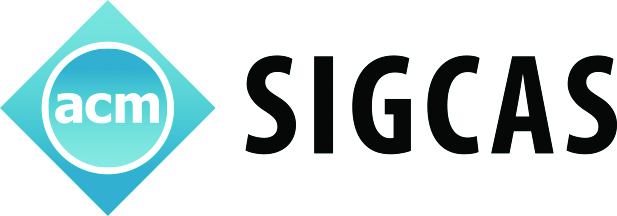The ACM 4th International Conference on Information Technology for Social Good (GoodIT 2024) is a premier international forum for researchers, practitioners, and educators to present and discuss the most recent innovations, trends, and concerns, as well as practical challenges encountered and solutions adopted in the fields of data and technology for addressing Social Good and the UN Sustainable Development Goals. We welcome contributions that delve into the nexus of technology, data science, and social well-being, exploring how these domains interconnect and impact society.
Alongside the main track, the conference includes the Work-in-Progress and PhD Track. The Work-in-Progress Track is an excellent opportunity for practitioners and researchers to present early-stage work, offering a platform for sharing innovative ideas, receiving feedback, and fostering discussions and collaborations. The PhD Track is designed for PhD students at different stages of their research. It provides a valuable opportunity for these students to present and refine their research under the guidance of experienced researchers.
Additionally, the program is enriched with several Special Tracks. See here for details.
We welcome submissions on a wide range of topics, including but not limited to:
IT and Data Science for Social Good:
- Social Impact of Machine Learning Applications
- Data and algorithmic biases and potential societal risks
- Large language models (LLMs) and GenAI models impact on society
- Fairness, Accountability, and Transparency in Machine Learning
- Citizen Science
- IT for smart living, Health and social care
Technology for Social Good:
- AI and Machine Learning for Social and Humanitarian response
- IoT Solutions for Sustainable Development
- Decentralized approaches to IT
- Digital Solutions for Cultural Heritage
- Game, entertainment, and multimedia applications
- IT for education
Environmental Sustainability and Technology:
- Green Computing and Energy-Efficient Technologies
- Climate Change Modeling and Environmental Science
- Smart Cities and Sustainable Urban Development
- Sustainable Networking and Communication Systems
- Technology addressing the digital divide
Ethics, Policy, and Governance in Tech for Social Good:
- Regulatory and Policy Frameworks for Ethical Tech
- Governance of AI and Autonomous Systems in Social Contexts
- Digital Rights and Freedom in the Age of Technology
- Data Privacy and Security in Social Applications
Submission Guidelines
Submission Portal:
Please submit your papers through our online submission portal, available at https://goodit2024.hotcrp.com/
Paper Lengths
- Main Track and Special Tracks Full Paper Submission should be a maximum of 12 pages.
- Work-in-Progress papers should be a maximum of 8 pages.
- Ph.D. track papers should be a maximum of 5 pages.
References are excluded from the paper lengths indicated. Documents with a length disproportionate to their contribution will be rejected.
Format Requirements – Important
ACM GoodIT 2024 will follow the new workflow defined by the ACM called TAPS, so please read the instructions on the ACM page carefully. This new workflow allows having a final document in both PDF and HTML5 accessible formats.
The main steps to follow are:
- Authors prepare their manuscript in the designated single-column format using Microsoft Word or LaTeX (use the sample-manuscript.tex for submissions). LaTeX users should use \documentclass[manuscript, review]{acmart}. We strongly recommend using the LaTeX template rather than Word (Latex best practices for TAPS).
- The authors must submit a PDF manuscript via the HotCRP Submission Portal (see above). You will have to select the track where to submit your paper. The review process is single-blind, meaning that the reviewers’ identities are hidden from the authors, but the authors’ identities are known to the reviewers. Below are quick links for templates.
- Microsoft Word
- LaTeX (Use sample-manuscript.tex for submissions)
- Overleaf (or search for: ACM Conference Proceedings Primary Article)
- Upon conditional acceptance of an article, authors revise their manuscript and submit publication-ready source files (Word or LaTeX) to TAPS (not on the submission system). We will announce further instructions after the papers submission deadline.
Publication and Acceptance
Submitted papers must be original works and must not have been previously published. They will be peer-reviewed by the member of the TPC (three reviews). At least one of the authors of all accepted papers must register and present the work in presence at the conference; otherwise, the paper will not be published in the proceedings. All accepted and presented papers will be included in the conference proceedings published in ACM Digital Library.
Associated Special issues:
We are pleased to announce that a selection of the accepted papers will be proposed for submitting an extended version to the following Journal’s special issues:
- “Data for the Wellbeing of Most Vulnerable,” a topical issue of the EPJ Data Science” Springer Journal. More details here:
https://www.springeropen.com/collections/dwmv - “Advances in Tiny Machine Learning (TinyML): Applications, Models, and Implementation,” a special issue of AI (ISSN 2673-2688) MDPI Journal. More details here: https://www.mdpi.com/journal/ai/special_issues/3AT5071K1X
ACM Submitting Policy
- By submitting your article to an ACM Publication, you are hereby acknowledging that you and your co-authors are subject to all ACM Publications Policies, including ACM’s new Publications Policy on Research Involving Human Participants and Subjects. Alleged violations of this policy or any ACM Publications Policy will be investigated by ACM and may result in a full retraction of your paper, in addition to other potential penalties, as per ACM Publications Policy.
- Please ensure that you and your co-authors obtain an ORCID ID, so you can complete the publishing process for your accepted paper. ACM has been involved in ORCID from the start and we have recently made a commitment to collect ORCID IDs from all of our published authors. The collection process has started and will roll out as a requirement throughout 2022. We are committed to improve author discoverability, ensure proper attribution and contribute to ongoing community efforts around name normalization; your ORCID ID will help in these efforts.





